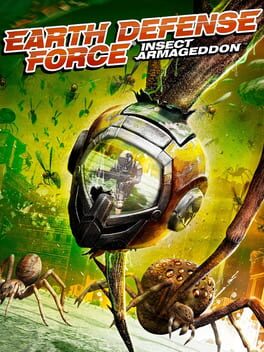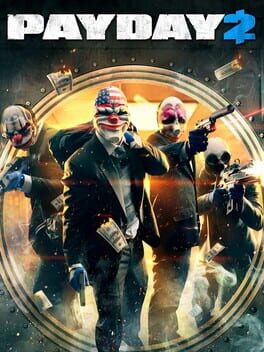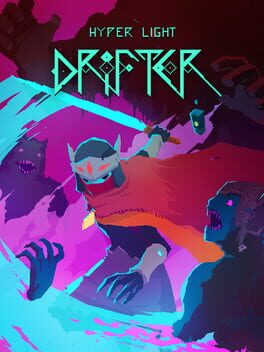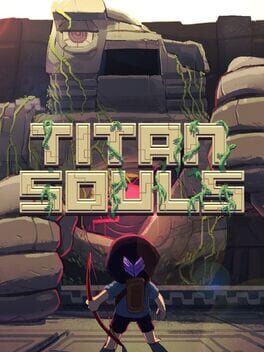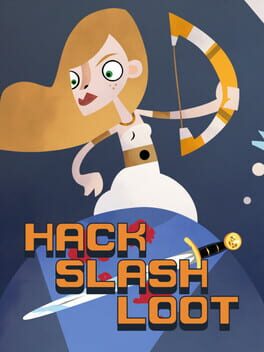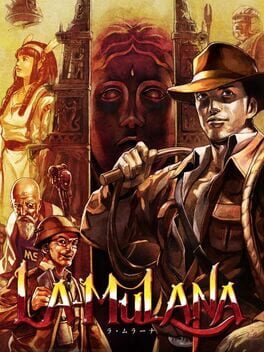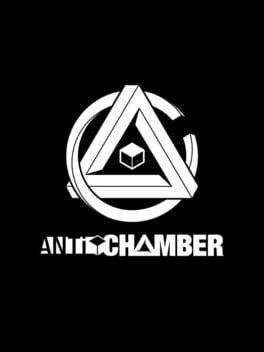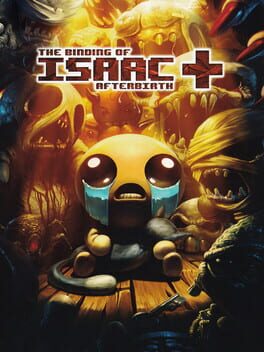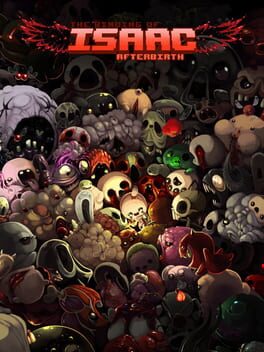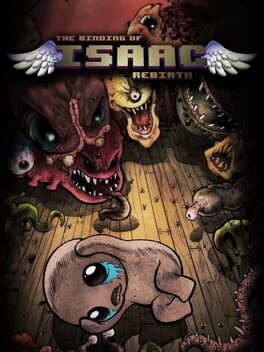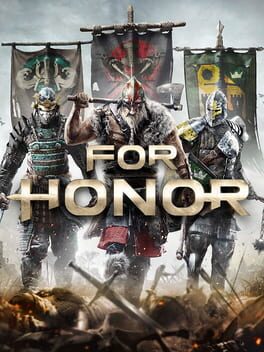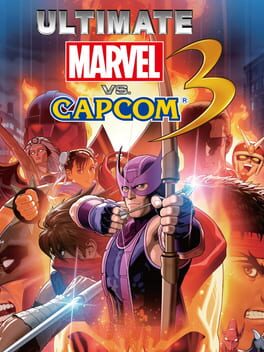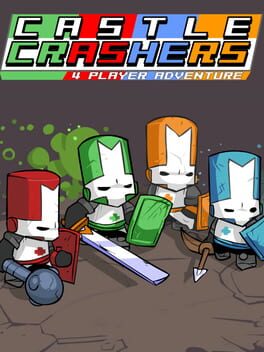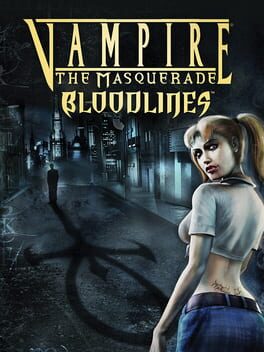Klaustrix
BACKER
If you're unfamiliar with Earth Defence Force the concept is simple - you're living out the plot of a B-Movie where earth is being invaded by a billion bugs, aliens, robots, and kaiju. You are a member of the EDF tasked with killing every single one on foot with an M15. Lock and load soldier.
Known in the community as 'the American EDF game', IA introduced the three new classes which have gone on to become a series staple, but that's about it. The core of the gameplay is there, but the entire thing takes place in a single location, the zany variety of weapons is missing, and the classes haven't really found their feet mechanically yet leaving Wing Divers feeling fast but weak, Fencers too slow to live, and Air Raiders are mostly useless.
The games are known for bright colourful and silly scenarios with comical radio chatter as HQ bumble around figuring out about the invasion, but IA went for a much darker more serious tone, everything is gritty, and the story ends on a bleaker note. All of the levity and fun from earlier games is completely absent. They tried to make the banter between units more silly but this just become incredibly repetitive as you trudge through endless empty tunnels and large stretches of war-torn city.
I ended up beating the game on hard which was a slog and without the weapon variety, the location variety, and the fun cheesy tone of previous games it was a dull grind all the way through. The only saving grace is they got the basic gameplay feel right. If you're new you should grab EDF 5, or World Brothers - or just wait for 6 to come out. This one is very much old news and has been improved upon.
Known in the community as 'the American EDF game', IA introduced the three new classes which have gone on to become a series staple, but that's about it. The core of the gameplay is there, but the entire thing takes place in a single location, the zany variety of weapons is missing, and the classes haven't really found their feet mechanically yet leaving Wing Divers feeling fast but weak, Fencers too slow to live, and Air Raiders are mostly useless.
The games are known for bright colourful and silly scenarios with comical radio chatter as HQ bumble around figuring out about the invasion, but IA went for a much darker more serious tone, everything is gritty, and the story ends on a bleaker note. All of the levity and fun from earlier games is completely absent. They tried to make the banter between units more silly but this just become incredibly repetitive as you trudge through endless empty tunnels and large stretches of war-torn city.
I ended up beating the game on hard which was a slog and without the weapon variety, the location variety, and the fun cheesy tone of previous games it was a dull grind all the way through. The only saving grace is they got the basic gameplay feel right. If you're new you should grab EDF 5, or World Brothers - or just wait for 6 to come out. This one is very much old news and has been improved upon.
2013
You play one of up to four players in a co-op FPS where you tool up and pull off a heist. For now let's put aside the 1200+ achievements, 82 DLC, and the lore, and just focus on the core game.
Heists can either be done quiet or loud. In loud you arm up with heavy weapons, kill the guards, and fend off the police and special enemies for the duration of the heist. In quiet you take everyone hostage and try not to let anyone raise the alarm, but since quiet goes wrong easily and ends up loud anyway most people just play loud. In either case one player often has to bring and manage a safe drill until the safe opens, then the team has to transport the money bags to the exit point and escape.
Each successful heist grants you cash which you can spend to unlock new weapons, weapon mods, and equipment. You also gain XP which works towards unlocking perks and skills that alter gameplay and give you advantages. All of this combined results in many possible builds with an intricate level of customisation.
The game is quite straight forward in practice but new players are sure to be overwhelmed. The sheer amount of content, options, and intricate game mechanics that have built up over the last 10 years mean you're going to have to do a lot of catching up. Even if you do this game is built for grinding. From generating cash, completing missions, working through the story, collecting coins, xp unlocks, cosmetic unlocks, base progression... it's all built around you playing this game constantly - which much of the fanbase has been doing.
This late in the game's life cycle you'd be better off just waiting for Payday 3 to come out. There's such a mountain of bloat from years of updates that you're late to the party. Personally I was never fond of the grind, all of the unlocks feel shallow and numeric, managing builds is a snorefest, I'm not a gun guy, and it takes forever to get xp and perks.
A good concept but very much built for 10 years of gameplay and spread just as thin. Definitely not my thing but it might be yours.
Heists can either be done quiet or loud. In loud you arm up with heavy weapons, kill the guards, and fend off the police and special enemies for the duration of the heist. In quiet you take everyone hostage and try not to let anyone raise the alarm, but since quiet goes wrong easily and ends up loud anyway most people just play loud. In either case one player often has to bring and manage a safe drill until the safe opens, then the team has to transport the money bags to the exit point and escape.
Each successful heist grants you cash which you can spend to unlock new weapons, weapon mods, and equipment. You also gain XP which works towards unlocking perks and skills that alter gameplay and give you advantages. All of this combined results in many possible builds with an intricate level of customisation.
The game is quite straight forward in practice but new players are sure to be overwhelmed. The sheer amount of content, options, and intricate game mechanics that have built up over the last 10 years mean you're going to have to do a lot of catching up. Even if you do this game is built for grinding. From generating cash, completing missions, working through the story, collecting coins, xp unlocks, cosmetic unlocks, base progression... it's all built around you playing this game constantly - which much of the fanbase has been doing.
This late in the game's life cycle you'd be better off just waiting for Payday 3 to come out. There's such a mountain of bloat from years of updates that you're late to the party. Personally I was never fond of the grind, all of the unlocks feel shallow and numeric, managing builds is a snorefest, I'm not a gun guy, and it takes forever to get xp and perks.
A good concept but very much built for 10 years of gameplay and spread just as thin. Definitely not my thing but it might be yours.
2016
A stunning love letter to the SNES-era action RPG, Hyper Light Drifter presents a beautiful neon world mid-apocalypse and suffering from an event that has left its inhabitants decimated and beset by monsters. The incredibly detailed and well animated pixel art is accompanied by an equally wonderful score by Disasterpiece that captures the ethereal decaying atmosphere perfectly.
The story is intentionally enigmatic with only the animated intro providing context and while it leaves us with more questions than answers thankfully we don't need any to progress. Four directions to go in and by the time we reach the end any one we understand the game's logic - explore, fight, gather collectibles, beat the boss, grow in power.
Combat is reactive and punishing as you master dashing, slashing, and shooting. It's a volatile playstyle that lets you be aggressive - too much though and you can lunge right into attacks. The enemies are also completely different in each area offering a variety of tactics that keeps things fresh. Each boss also acts as a 'super' version of the monster faction that will test your skill against their unique style of fighting.
The world is genuinely beautiful and each biome is uniquely distorted by the on-going corruption, from crystalline forests and flooded ruins to polluted factories and frozen mountain caverns, and more. The soft world building lends to the world's mystery only offering glimpses at the larger goings on with sights that had me genuinely pause to take it in. It's also filled with secrets and collectibles that invite you to explore every inch.
In conclusion, the game is an artistic masterpiece and while combat is challenging throughout it does borrow a little too much from Souls with the narrow health, hefty damage, and instant heal mechanic (as many games seem to aim for now days). That said combat never gets tedious even if it can be repetitive, and that's a small blemish on a vast canvas with so many more positives than negatives. High scores for the grand vision and overall execution.
The story is intentionally enigmatic with only the animated intro providing context and while it leaves us with more questions than answers thankfully we don't need any to progress. Four directions to go in and by the time we reach the end any one we understand the game's logic - explore, fight, gather collectibles, beat the boss, grow in power.
Combat is reactive and punishing as you master dashing, slashing, and shooting. It's a volatile playstyle that lets you be aggressive - too much though and you can lunge right into attacks. The enemies are also completely different in each area offering a variety of tactics that keeps things fresh. Each boss also acts as a 'super' version of the monster faction that will test your skill against their unique style of fighting.
The world is genuinely beautiful and each biome is uniquely distorted by the on-going corruption, from crystalline forests and flooded ruins to polluted factories and frozen mountain caverns, and more. The soft world building lends to the world's mystery only offering glimpses at the larger goings on with sights that had me genuinely pause to take it in. It's also filled with secrets and collectibles that invite you to explore every inch.
In conclusion, the game is an artistic masterpiece and while combat is challenging throughout it does borrow a little too much from Souls with the narrow health, hefty damage, and instant heal mechanic (as many games seem to aim for now days). That said combat never gets tedious even if it can be repetitive, and that's a small blemish on a vast canvas with so many more positives than negatives. High scores for the grand vision and overall execution.
2015
Titan Souls is a boss rush game that pits the tiny protagonist and their bow against gigantic enemies in pixel art arenas.
The idea is solid - each titan is basically a puzzle, they die in one hit but so do you, so you have to identify where the weak point is and find the opening in their attack pattern. Everything is small so accuracy is tough and missing means you'll have to slowly call your singular arrow back over to you while dodging the titan's aggressive onslaught.
Gameplay is fast paced and challenging to start with but never really evolves beyond the same single mechanic. It's designed to be over as quickly as possible and while there can be a bit of a mad scramble between the start of the fight and figuring out how to deliver the killing blow there isn't much substance to the encounters other than roll-dodging for dear life.
While my instinct is to be hard on this game I have to appreciate that it came out of a small gamejam project which was polished and tidied up for steam. It feels like a small dame dev portfolio piece, but the price absolutely reflects that so just be aware you're getting what you pay for, albeit respectably polished and good for a short single playthrough.
The idea is solid - each titan is basically a puzzle, they die in one hit but so do you, so you have to identify where the weak point is and find the opening in their attack pattern. Everything is small so accuracy is tough and missing means you'll have to slowly call your singular arrow back over to you while dodging the titan's aggressive onslaught.
Gameplay is fast paced and challenging to start with but never really evolves beyond the same single mechanic. It's designed to be over as quickly as possible and while there can be a bit of a mad scramble between the start of the fight and figuring out how to deliver the killing blow there isn't much substance to the encounters other than roll-dodging for dear life.
While my instinct is to be hard on this game I have to appreciate that it came out of a small gamejam project which was polished and tidied up for steam. It feels like a small dame dev portfolio piece, but the price absolutely reflects that so just be aware you're getting what you pay for, albeit respectably polished and good for a short single playthrough.
2012
Hack, Slash, Loot is a minimalist old school style of Roguelike that lets you select from a variety of fantasy trope characters like the Human Wizard and Elf Ranger as well as selecting the self contained quest or scenario for your adventure.
The game has the surface elements of classical Rogue design with everything being turn based, set on a grid, and challenging you to navigate levels, kill creatures, collect loot, drink coloured potions, and upgrade your hero. Under the surface it lacks any of the nuance or charisma that these games normally use to keep you around.
The combat is heavily reliant on RNG which makes it an utter crap shoot if you're going to survive each encounter. The levels are linear and the same every time you play which is kinda antithetical to the genre. There's little reward when you do succeed and no motivation to continue because there's no skill involved with your survival.
It checks all the genre boxes but doesn't do any work to add substance to the game. Worse than that it is un-fun. From start to finish there's no fanfare, no innovation, no creativity - it's just a lesser version of everything we've seen before from this genre.
The game has the surface elements of classical Rogue design with everything being turn based, set on a grid, and challenging you to navigate levels, kill creatures, collect loot, drink coloured potions, and upgrade your hero. Under the surface it lacks any of the nuance or charisma that these games normally use to keep you around.
The combat is heavily reliant on RNG which makes it an utter crap shoot if you're going to survive each encounter. The levels are linear and the same every time you play which is kinda antithetical to the genre. There's little reward when you do succeed and no motivation to continue because there's no skill involved with your survival.
It checks all the genre boxes but doesn't do any work to add substance to the game. Worse than that it is un-fun. From start to finish there's no fanfare, no innovation, no creativity - it's just a lesser version of everything we've seen before from this genre.
2012
La Mulana is an old school style of PC platformer that has you exploring ancient ruins and solving fiendish puzzles as Professor Lemeza. This is no ordinary metroidvania puzzle game however and Lemeza is less Indiana Jones and more Howard Carter. This is an incredibly detailed, lore heavy, obtuse archaeology-themed investigation game.
Every significant object, it's location, it's decoration, its surroundings, and so forth will need to be noted and catalogued. Write down associated text. Are there symbols? Are there statues or murals in the background art nearby? Sketch or screenshot them. Draw maps out and annotate them with what is where and how areas interconnect. What does Elder Xelpud have to say? Take a note.
Hopefully you're getting the picture by now. More than that you also have to consider that related puzzle pieces are not always near to each other, the translations are not entirely reliable, and the game is gigantic. Then when you do solve a puzzle you will be rewarded with tough as nails boss fights and it only gets harder from there.
La Mulana is a work of art made for a very select audience to appreciate. It's challenging in everything it does and makes no effort to be more accessible, there's just the environment and the task of engaging with it. The community have created spoiler free guides to get people started, but it's an arduous journey. A shame it's as impressive as it is impenetrable.
Every significant object, it's location, it's decoration, its surroundings, and so forth will need to be noted and catalogued. Write down associated text. Are there symbols? Are there statues or murals in the background art nearby? Sketch or screenshot them. Draw maps out and annotate them with what is where and how areas interconnect. What does Elder Xelpud have to say? Take a note.
Hopefully you're getting the picture by now. More than that you also have to consider that related puzzle pieces are not always near to each other, the translations are not entirely reliable, and the game is gigantic. Then when you do solve a puzzle you will be rewarded with tough as nails boss fights and it only gets harder from there.
La Mulana is a work of art made for a very select audience to appreciate. It's challenging in everything it does and makes no effort to be more accessible, there's just the environment and the task of engaging with it. The community have created spoiler free guides to get people started, but it's an arduous journey. A shame it's as impressive as it is impenetrable.
2015
A short narration focused walking sim by Davey Wreden (The Stanley Parable) in which we're presented with a variety of unfinished game demos and prototypes created by a designer the narrator admires but doesn't understand.
I won't go into any more detail regarding the story because it is a well written piece worth experiencing without any primer, punctuated by the digital worlds that eschew traditional gameplay for a more passive role that lets you experience the narrators story for yourself.
It's a fascinating recontextualisation of what digital spaces can be and, on a meta level, how they can be used to not only help tell a story but to put you inside the story itself. It was one of the earlier titles to play with the meta of game spaces and the story goes to show that Wreden has always had a talent for writing.
While other games have started to play with these concepts more since, the beginners guide was most definitely an inspiration for them and stands out as a short emotional experience that's worth having if you enjoy more experimental digital media. High points for being ahead of the curve and expanding the horizon.
I won't go into any more detail regarding the story because it is a well written piece worth experiencing without any primer, punctuated by the digital worlds that eschew traditional gameplay for a more passive role that lets you experience the narrators story for yourself.
It's a fascinating recontextualisation of what digital spaces can be and, on a meta level, how they can be used to not only help tell a story but to put you inside the story itself. It was one of the earlier titles to play with the meta of game spaces and the story goes to show that Wreden has always had a talent for writing.
While other games have started to play with these concepts more since, the beginners guide was most definitely an inspiration for them and stands out as a short emotional experience that's worth having if you enjoy more experimental digital media. High points for being ahead of the curve and expanding the horizon.
2013
Antichamber is a puzzle game that plays with non-euclidean geometry, perspective, and an unusual gadget, to create environmental puzzles in a world that feels like a cross between a modern art museum and test laboratory.
The minimalist art style uses splashes of colour and sound to help you navigate its labyrinthine black and white halls as facing and movement are turned into novel game mechanics. It might sound dizzying but it's applied in a gentle way that makes the world abstract without becoming disorienting. Plus you can always teleport back to the entrance and use the map to restore your sense of direction if you need it.
Each puzzle is accompanied by motivational phrases and tid-bits of advice that punctuate the lesson it aimed to teach turning each challenge into a physical metaphor. The solutions tend to build on one another so it feels like you're learning the rules of the space as you play and explore, best exemplified by the cube tool. I can't get into much more detail than that without spoiling things but the puzzles are interesting and unconventional.
If you enjoy spatial logic puzzles Antichamber has a few hours of fun for you to delve into. It's not a hard game and some solutions can be tedious to implement, but the visuals, environment, and creative gameplay make this title stand out as a memorable experience.
The minimalist art style uses splashes of colour and sound to help you navigate its labyrinthine black and white halls as facing and movement are turned into novel game mechanics. It might sound dizzying but it's applied in a gentle way that makes the world abstract without becoming disorienting. Plus you can always teleport back to the entrance and use the map to restore your sense of direction if you need it.
Each puzzle is accompanied by motivational phrases and tid-bits of advice that punctuate the lesson it aimed to teach turning each challenge into a physical metaphor. The solutions tend to build on one another so it feels like you're learning the rules of the space as you play and explore, best exemplified by the cube tool. I can't get into much more detail than that without spoiling things but the puzzles are interesting and unconventional.
If you enjoy spatial logic puzzles Antichamber has a few hours of fun for you to delve into. It's not a hard game and some solutions can be tedious to implement, but the visuals, environment, and creative gameplay make this title stand out as a memorable experience.
While the previous expansion was highly praised for it's size and variety Plus unfortunately adds a smattering of content that is largely underwhelming and even undermines some of the content added by Afterbirth.
The new enemies, items, and challenges extend the content a bit but far less than the previous expansion, and the victory lap and HUD features feel overdue but welcome. That's the good news. The bad news is the new characters add very little, the new difficulty for Greed Mode turns it into a chore, the new floor is little more than a reskin with bosses in every room, and the new boss fights are very underwhelming albeit each for different reasons. The dev tools are there but only really matter to the die hard community members.
All in all this is a pretty lacklustre addition to the game which takes more substance than it adds. It feels like lazy padding which has gone on to be shown up by the player made Antibirth expansion which wipes the floor with Plus with sheer creativity.
The new enemies, items, and challenges extend the content a bit but far less than the previous expansion, and the victory lap and HUD features feel overdue but welcome. That's the good news. The bad news is the new characters add very little, the new difficulty for Greed Mode turns it into a chore, the new floor is little more than a reskin with bosses in every room, and the new boss fights are very underwhelming albeit each for different reasons. The dev tools are there but only really matter to the die hard community members.
All in all this is a pretty lacklustre addition to the game which takes more substance than it adds. It feels like lazy padding which has gone on to be shown up by the player made Antibirth expansion which wipes the floor with Plus with sheer creativity.
If you were looking for more Isaac well here it is. From new items, rooms, enemies, characters, game modes, leaderboards, and challenges to new routes, endings, bosses, weapon combos, and more poop.
For the price you're getting a gigantic expansion of content that also comes with a big spike in difficulty. All of the areas have been spruced up with new rooms and more challenging enemies, the new bosses are harder, there are new joker items peppered in, and even new traps to deal with.
If you're already mastering the base game after 'everything got harder' and want to expand your poopy blood soaked horizons this is the DLC for you. The new characters, game modes, and item combos add a lot more to explore but the gameplay isn't drastically different so it's very much more of the same.
For the price you're getting a gigantic expansion of content that also comes with a big spike in difficulty. All of the areas have been spruced up with new rooms and more challenging enemies, the new bosses are harder, there are new joker items peppered in, and even new traps to deal with.
If you're already mastering the base game after 'everything got harder' and want to expand your poopy blood soaked horizons this is the DLC for you. The new characters, game modes, and item combos add a lot more to explore but the gameplay isn't drastically different so it's very much more of the same.
The grand daddy of the modern roguelite, BoI was originally a flash game by Edmund McMillen which evolved into a PC port, then into this version running on a properly coded engine.
The basic concept is that you play baby Isaac whose Christian mother thinks god is telling her to kill her son to prove her devotion, but Isaac escapes into the basement. What follows is a surreal and nightmarish descent through increasingly gory and disgusting locales fighting equally deformed and gross horrors within. It's a relic from an edgier time on the internet and has a lot of dark humour from blood laser vagina enemies to a playable dead baby.
The gameplay is an homage to the classic Legend of Zelda dungeons and starts out very punishing as you can literally only cry at enemies with pathetic tear drop bullets. Once you master the basics though and begin to unravel Isaac's many secrets you'll gradually unlock the game's knowledge gates that gives you the edge on each run - but even with the edge the game is still heavily RNG dependent.
The game boasts an enormous variety of power ups that alter how your tears function but there are famous 'run killer' items that will make the game unplayable. You have to learn to avoid them purely by trial and error and it makes the game very punishing for no reason so you may find yourself pulling up the wiki any time you encounter new items just to be careful if you don't want to waste your progress.
Under the gross humour/themes, punishing trial and error gameplay, and heavy RNG there's a very solid, addicting, and inspired roguelike that set many trends in the genre and prove why this game is still going 8 years after it was remastered. At this point though there's a lot to have missed and the game is so gigantic and random that even with my 750~ hours of play has garnered only 206 of the 637 achievements (including DLC).
A titan of the genre for sure, but old-fashioned, tedious, and exclusionary in it's execution. Points for sheer originality and trend setting, but points off for spiteful design choices and lack of accessibility.
The basic concept is that you play baby Isaac whose Christian mother thinks god is telling her to kill her son to prove her devotion, but Isaac escapes into the basement. What follows is a surreal and nightmarish descent through increasingly gory and disgusting locales fighting equally deformed and gross horrors within. It's a relic from an edgier time on the internet and has a lot of dark humour from blood laser vagina enemies to a playable dead baby.
The gameplay is an homage to the classic Legend of Zelda dungeons and starts out very punishing as you can literally only cry at enemies with pathetic tear drop bullets. Once you master the basics though and begin to unravel Isaac's many secrets you'll gradually unlock the game's knowledge gates that gives you the edge on each run - but even with the edge the game is still heavily RNG dependent.
The game boasts an enormous variety of power ups that alter how your tears function but there are famous 'run killer' items that will make the game unplayable. You have to learn to avoid them purely by trial and error and it makes the game very punishing for no reason so you may find yourself pulling up the wiki any time you encounter new items just to be careful if you don't want to waste your progress.
Under the gross humour/themes, punishing trial and error gameplay, and heavy RNG there's a very solid, addicting, and inspired roguelike that set many trends in the genre and prove why this game is still going 8 years after it was remastered. At this point though there's a lot to have missed and the game is so gigantic and random that even with my 750~ hours of play has garnered only 206 of the 637 achievements (including DLC).
A titan of the genre for sure, but old-fashioned, tedious, and exclusionary in it's execution. Points for sheer originality and trend setting, but points off for spiteful design choices and lack of accessibility.
2017
Kind of a weird mix between 3rd person action game, beat em up, and a hero arena game. You select a classical fighter and join a team as you fight for control points, one team gradually pushing the other to their demise.
You roam the map freely and can lock on to one enemy at a time, while locked on you're in a kind of 1-v-1 fighting mode that feels like a beat em up except that you can target forward, left or right when delivering attacks, the opponent has to block on the same direction or get hit, and vice-versa. It adds an extra dimension to the combat but with lag it becomes more of a guessing game as you try to react on the right axis.
All the while others can target you and pile on the offense, making 2-on-1's a deadly affair unless you can skilfully juggle both opponents attacks - the direction factor making this much more difficult and impossible with lag. Depending on your class you'll be better off moving with the team and trying to out-number or match the enemy group while being careful to watch for ambushes.
The game was novel and the medieval mix of European, Asian, and Nordic warriors combined with a more 'realistic' spin on things made for a fun few weeks of play but it becomes highly repetitive, the hero classes didn't feel well balanced, there aren't many attacks, very few maps, and both encounters and the battle itself feel more down to luck than skill. While more content has come since I have no motivation to go back. I feel like I experienced everything the game has to offer.
You roam the map freely and can lock on to one enemy at a time, while locked on you're in a kind of 1-v-1 fighting mode that feels like a beat em up except that you can target forward, left or right when delivering attacks, the opponent has to block on the same direction or get hit, and vice-versa. It adds an extra dimension to the combat but with lag it becomes more of a guessing game as you try to react on the right axis.
All the while others can target you and pile on the offense, making 2-on-1's a deadly affair unless you can skilfully juggle both opponents attacks - the direction factor making this much more difficult and impossible with lag. Depending on your class you'll be better off moving with the team and trying to out-number or match the enemy group while being careful to watch for ambushes.
The game was novel and the medieval mix of European, Asian, and Nordic warriors combined with a more 'realistic' spin on things made for a fun few weeks of play but it becomes highly repetitive, the hero classes didn't feel well balanced, there aren't many attacks, very few maps, and both encounters and the battle itself feel more down to luck than skill. While more content has come since I have no motivation to go back. I feel like I experienced everything the game has to offer.
The MvC series had been silent for quite a while before the rise of 3 and fans of 2 knew that this had a lot to live up to. While it is a more accessible offering that turned technical elements of the former game into a simple button press here it made my first proper taste of the series a powerful one.
I had a lot of fun with this title playing against hardcore beat em up players I was around at the time. It was the first time I was playing a fighter regularly and getting good at it. While I did favour spammy and fast characters, the game has a massive roster with a huge variety from both sides of the aisle that offer lots of different play styles - but even so the controls being so simple guarantees you a bit of fun even if you aren't versed in the move set.
I'm not advanced enough to really comment on the strength of the game in terms of frames, combo comparisons, and tournament play but I always remember having a good time as I discovered my team of 3 characters and every one I played against could emphasise their own playstyle, be it rushdown, hard defence, massive combo strings, or raw power. It was a game that felt like you could speak in your own fighting language and I appreciated getting to see that for myself.
It's a strong fighter, single player isn't worth mentioning, but it has tons of easter eggs and surprises, a million references, and remains a stronger entry than what's come since. A beginner playing it now - your mileage may vary.
I had a lot of fun with this title playing against hardcore beat em up players I was around at the time. It was the first time I was playing a fighter regularly and getting good at it. While I did favour spammy and fast characters, the game has a massive roster with a huge variety from both sides of the aisle that offer lots of different play styles - but even so the controls being so simple guarantees you a bit of fun even if you aren't versed in the move set.
I'm not advanced enough to really comment on the strength of the game in terms of frames, combo comparisons, and tournament play but I always remember having a good time as I discovered my team of 3 characters and every one I played against could emphasise their own playstyle, be it rushdown, hard defence, massive combo strings, or raw power. It was a game that felt like you could speak in your own fighting language and I appreciated getting to see that for myself.
It's a strong fighter, single player isn't worth mentioning, but it has tons of easter eggs and surprises, a million references, and remains a stronger entry than what's come since. A beginner playing it now - your mileage may vary.
2008
A 4 player co-op hack and slash by The Behemoth (Battleblock Theater, Alien Hominid). The game follows the comical adventures of four knights as they try to defeat a dark wizard and rescue four princesses.
The game looks like a 2004 flash animation with charmingly simple cartoony graphics and it plays about as complex as one too. You have light, heavy, ranged, and magic attacks but they aren't employed in any tactical way. You eventually unlock combos as you level up but otherwise it plays like an old school side scrolling brawler (ala Streets of Rage).
The story is minimal and very silly. Each stage has it's own jokes as you hunt down the dark wizard and face off against his various minions. It's not a very deep game but my god is it a grind as it goes on and on. If you're playing with friends there's a bit more to it but as a single player adventure it just drags and you'll have to grind levels at points to get past later stages due to linear difficulty.
There's some collectibles, cosmetics, and reskined characters to unlock, but those are only for the truly dedicated. If you want a simple silly adventure it's cheap and plentiful but it's so basic it has trouble sustaining a playthrough.
The game looks like a 2004 flash animation with charmingly simple cartoony graphics and it plays about as complex as one too. You have light, heavy, ranged, and magic attacks but they aren't employed in any tactical way. You eventually unlock combos as you level up but otherwise it plays like an old school side scrolling brawler (ala Streets of Rage).
The story is minimal and very silly. Each stage has it's own jokes as you hunt down the dark wizard and face off against his various minions. It's not a very deep game but my god is it a grind as it goes on and on. If you're playing with friends there's a bit more to it but as a single player adventure it just drags and you'll have to grind levels at points to get past later stages due to linear difficulty.
There's some collectibles, cosmetics, and reskined characters to unlock, but those are only for the truly dedicated. If you want a simple silly adventure it's cheap and plentiful but it's so basic it has trouble sustaining a playthrough.
An immersive sim based on the tabletop roleplaying game of the same name, featuring an edgy 90's setting where the supernatural hides in plain sight. The game features a variety of vampire clans that play on different vampire depictions and tropes, each providing a different play experience.
So first and foremost the version of this game hosted on steam is incredibly buggy and may not even run. Thankfully the community have kept an unofficial patch going. If you want to play this game it's recommended to follow the guides on steam.
Once the game is running you'll build a character and get introduced to both the various clans and local vampire politics before getting dumped into Los Angeles, free to explore and do the basics like drinking blood and learning more about the state of the world you've arrived in.
The gameplay depends on your clan and skill choices but mostly you'll be in the city hubs hiding your vampirism and talking to the locals (both in and out of the loop) investigating a number of mysteries. The missions tend to be more combat oriented and explore the main storyline around a coffin that has appeared in the city with some disturbing rumours surrounding it.
The game is crude in look and gameplay as you comically swing your weapon around, but it still offers a deep world and fun story driven game play. Character choices change where you can go, who you can talk to, and the variety of ways to engage with any given problem mean curiosity and words can be more powerful than bullets. If that and a heaping spoonful of edgy 90's vampire fiction sounds like fun, you'd do well to give it a shot. Just maybe save the Malkavians for your 2nd playthrough.
So first and foremost the version of this game hosted on steam is incredibly buggy and may not even run. Thankfully the community have kept an unofficial patch going. If you want to play this game it's recommended to follow the guides on steam.
Once the game is running you'll build a character and get introduced to both the various clans and local vampire politics before getting dumped into Los Angeles, free to explore and do the basics like drinking blood and learning more about the state of the world you've arrived in.
The gameplay depends on your clan and skill choices but mostly you'll be in the city hubs hiding your vampirism and talking to the locals (both in and out of the loop) investigating a number of mysteries. The missions tend to be more combat oriented and explore the main storyline around a coffin that has appeared in the city with some disturbing rumours surrounding it.
The game is crude in look and gameplay as you comically swing your weapon around, but it still offers a deep world and fun story driven game play. Character choices change where you can go, who you can talk to, and the variety of ways to engage with any given problem mean curiosity and words can be more powerful than bullets. If that and a heaping spoonful of edgy 90's vampire fiction sounds like fun, you'd do well to give it a shot. Just maybe save the Malkavians for your 2nd playthrough.
